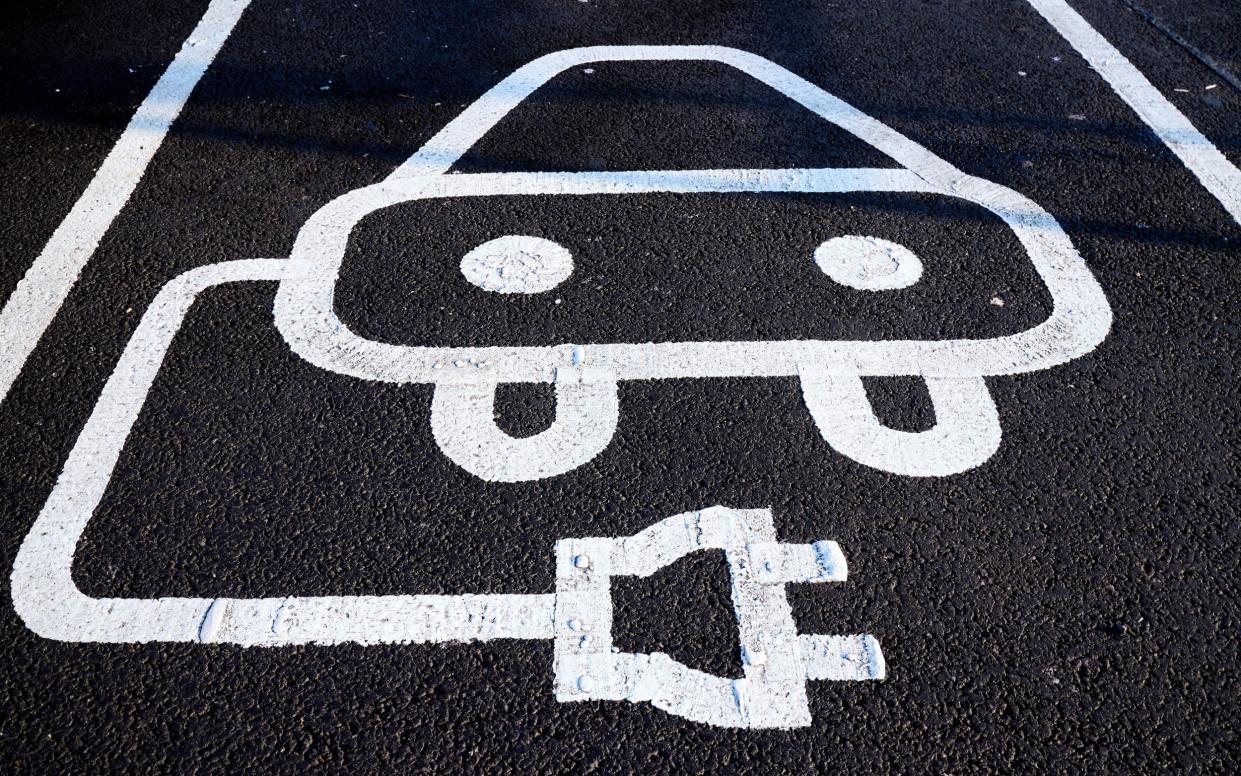The great electric car scandal is only just beginning

It is all beginning to look a bit like the Volkswagen scandal: you remember, when regulators caught out the German car company for installing software which detected when diesel engines were in test mode and adjusted performance so that it flattered emissions figures.
A test by What Car magazine has revealed that the official figures for the range of electric cars over-estimates their real-life range by around a third. Vehicles were driven around a test track in Bedfordshire until they ran out of juice.
The result? A Lexus UX 300e (official range 273 miles) managed just 170 miles before slowing to a halt – 37.9 per cent less than advertised. A Volkswagen ID7 Pro (official range 383 miles) managed 254 and a Volvo XC40 Recharge (official range 331 miles) managed 252. Moreover, these are all supposedly long-range vehicles which retail at over £50,000 new.
I am no petrol-head. I would much rather have a clean electric vehicle, but sorry, I am still not buying one. Last week I drove up and down to the Scottish Highlands, with a door-to-door distance of 480 miles. With generous stops, it took me 11 hours. It was no problem in my diesel Volvo estate. I didn’t even have to fill up on the way up: the car averaged 59 miles to the gallon, giving it a range of around 700 miles. I simply don’t know how I am supposed to complete such a journey in an electric car, even if I was minded to pay £55,000 for one.
Say I was in that Volvo XC40 Recharge. Theoretically I could do the journey – just about – on a single charge. But that would require an overnight stop exactly half way because a rapid charger, assuming I could find one that was vacant and working, would only take the car from a 20 percent to 80 percent charge in a reasonable timeframe. In practice I would need to stop at least twice, and probably three times, spending around hour a time at some miserable service station.
And that is in a premium model. I once sat down and worked out how I could get to Scotland in a Nissan Leaf, fully-loaded and in cold weather, when even the advertised range for the car dropped to 99 miles. It was going to take at least seven hour-long stops – and even that relied on sites which in many cases offered only a single charger. Too bad if someone else was using it.
Even worse would be when I eventually reached Scotland. Last week I took a trip down the 22 mile single track road which leads to the back end of the Knoydart peninsula. I didn’t see any electric vehicles there, and no wonder. There is no hope whatsoever of charging a vehicle anywhere along that road – to attempt the journey I would end up feeling like Captain Scott fretting whether his rations were going to last to the South Pole and back.
Electric cars are practical as local runabouts, for motorists who have access to off-street parking within reach of an electric socket. But they are still not a practical solution for most of us. Nor are they likely to become so in the near future. If we plastered the country with rapid chargers it would blow out the grid. As the chief of Toyota recently pointed out, Western governments have been trying to push for a complete transition to electric vehicles in ignorance of the fact that many parts of the world do not have effective electricity grids.
Trying to jump straight to electric cars has condemned the whole effort to decarbonise road transport to failure. What I really wanted to buy, by the way, was not a diesel car but a hybrid petrol one, with a 50 mile electric-only range and a small petrol engine to provide back up for longer journeys. But no such vehicle seemed to exist when I was looking, and further innovation on hybrids has been undermined by the government’s pre-announced ban from 2035 onwards. As a result, manufacturers are being condemned to make vehicles which few of us will ever want to buy.

